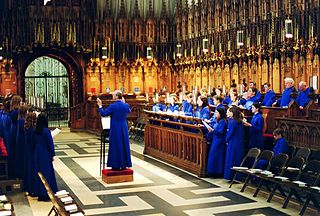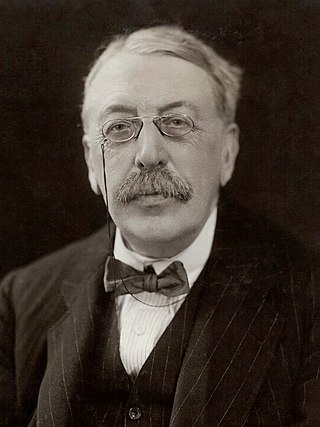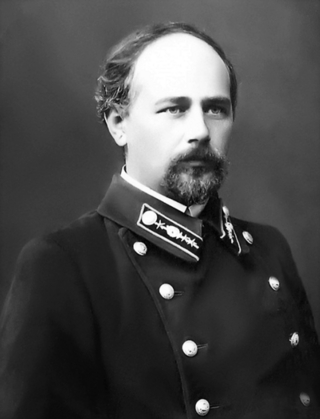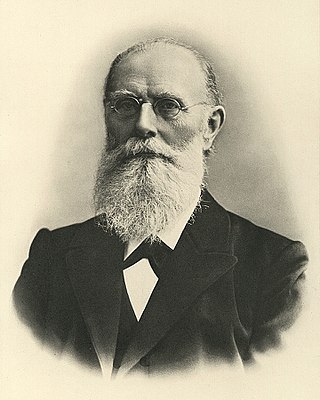Gerard Kockelmans (May 5, 1925 in Meerssen - September 7, 1965 in Beek), was a Dutch composer, conductor and music teacher.
He studied at the conservatoires of Maastricht, The Hague and Utrecht, where Kees van Baaren, Sem Dresden and Henri Geraedts were among his teachers.
He mainly wrote choral music. Other works comprise masses, motets, chamber music and songs. He was a master of counterpoint. Although he was clearly influenced and inspired by the twelve-tone music, which was very popular in his day, he never completely embraced this style. Hence his music, although ‘modern’, sounds accessible and comprehensible. Towards the end of his life, he practiced the so-called ‘serial’ style of composition, which he developed himself.
As a choir conductor and music teacher, Kockelmans was influential in the music scene of Limburg. Amongst the choirs he conducted were the ‘Maartrichts mannenkoor’, ‘oratoriumvereniging Nieuw Leven’, ‘Mignon’ and ‘Maastrichter Staar’.
He was also an uncle of composer Hans Kockelmans.

A choir ( KWIRE; also known as a chorale or chorus is a musical ensemble of singers. Choral music, in turn, is the music written specifically for such an ensemble to perform or in other words is the music performed by the ensemble. Choirs may perform music from the classical music repertoire, which spans from the medieval era to the present, or popular music repertoire. Most choirs are led by a conductor, who leads the performances with arm, hand, and facial gestures.

Conducting is the art of directing a musical performance, such as an orchestral or choral concert. It has been defined as "the art of directing the simultaneous performance of several players or singers by the use of gesture." The primary duties of the conductor are to interpret the score in a way that reflects the specific indications in that score, set the tempo, ensure correct entries by ensemble members, and "shape" the phrasing where appropriate. Conductors communicate with their musicians primarily through hand gestures, usually with the aid of a baton, and may use other gestures or signals such as facial expression and eye contact. A conductor usually supplements their direction with verbal instructions to their musicians in rehearsal.

Sir Charles Villiers Stanford was an Anglo-Irish composer, music teacher, and conductor of the late Romantic era. Born to a well-off and highly musical family in Dublin, Stanford was educated at the University of Cambridge before studying music in Leipzig and Berlin. He was instrumental in raising the status of the Cambridge University Musical Society, attracting international stars to perform with it.
Traditional Latvian music is often set to traditional poetry called dainas, featuring pre-Christian themes and legends, drone vocal styles, and Baltic psaltery.

Josef Gabriel Rheinberger was an organist and composer from Liechtenstein, residing in Bavaria for most of his life. As court conductor in Munich, he was responsible for the music in the royal chapel. He is known for sacred music, works for organ and vocal works, such as masses, a Christmas cantata and the motet Abendlied; he also composed two operas and three singspiele, incidental music, secular choral music, two symphonies and other instrumental works, chamber music, and works for organ.
Robert Tear, CBE was a Welsh tenor singer, teacher and conductor. He first became known singing in the operas of Benjamin Britten in the mid-1960s. From the 1970s until his retirement in 1999 his main operatic base was the Royal Opera House, Covent Garden; he appeared with other opera companies in the UK, mainland Europe, the US and Australia. Generally avoiding the Italian repertoire, which did not suit his voice, Tear became known in leading and character roles in German, British and Russian operas.

Mykola Dmytrovych Leontovych was a Ukrainian composer, conductor, ethnomusicologist, and teacher. His music was inspired by the Ukrainian composer Mykola Lysenko and the Ukrainian National Music School. Leontovych specialised in a cappella choral music, ranging from original compositions to church music to elaborate arrangements of folk music.
Herbert Whitton Sumsion was an English musician who was organist of Gloucester Cathedral from 1928 to 1967. Through his leadership role with the Three Choirs Festival, Sumsion maintained close associations with major figures in England's 20th-century musical renaissance, including Edward Elgar, Herbert Howells, Gerald Finzi, and Ralph Vaughan Williams. Although Sumsion is known primarily as a cathedral musician, his professional career spanned more than 60 years and encompassed composing, conducting, performing, accompanying, and teaching. His compositions include works for choir and organ, as well as lesser-known chamber and orchestral works.

The Choir of King's College, Cambridge is an English Anglican choir. It was created by King Henry VI, who founded King's College, Cambridge, in 1441, to provide daily singing in his Chapel, which remains the main task of the choir to this day.

Franz Wüllner was a German composer and conductor. He led the premieres of Wagner's Das Rheingold and Die Walküre, but was much criticized by Wagner himself, who greatly preferred the more celebrated conductors Hans von Bülow and Hermann Levi.

Zacharia Petres dze Paliashvili, also known as Zachary Petrovich Paliashvili, was a Georgian composer. Regarded as one of the founders of Georgian classical music, his work is known for its eclectic fusion of folk songs and stories with 19th-century Romantic classical themes. He was the founder of the Georgian Philharmonic Society and later, the head of the Tbilisi State Conservatoire. The Georgian National Opera and Ballet Theater of Tbilisi was named in his honor in 1937. Notably, Paliashvili's music serves as the basis of the National Anthem of Georgia.
Margriet Ehlen is a Dutch poet, composer, conductor and educator of classical music.

Hans Kockelmans is a Dutch composer, teacher, and performer of Early Classical and electronic music.

Hildor Lundvik was a Swedish musician and composer. He first studied law at Uppsala University, then music at the Royal Swedish Academy of Music in Stockholm, graduating as a music teacher in 1912, as precentor and organist (Västerås) in 1919 and singing teacher in 1913. He became organist of St Göran, Stockholm, 1928, directed the Bellman Male-Choir from 1930 to 1950, and was Principal Conductor of the Stockholm Federation of Male Voice Choirs.

St. Thomas School, Leipzig is a co-educational and public boarding school in Leipzig, Saxony, Germany. It was founded by the Augustinians in 1212 and is one of the oldest schools in the world.
Marģeris Zariņš was a Latvian composer and writer. He was an author of symphonic and vocal symphonic music, choir music, vocal chamber music, cantatas, oratories and operas; contemporary picaresque novels and short stories. He is considered to be the first representative of the Postmodern style in Latvian literature.

Boris Papandopulo was a Croatian composer and conductor of Greek and Russian Jewish descent. He was the son of Greek nobleman Konstantin Papandopulo and Croatian opera singer Maja Strozzi-Pečić and one of the most distinctive Croatian musicians of the 20th century. Papandopulo also worked as music writer, journalist, reviewer, pianist and piano accompanist; however, he achieved the peaks of his career in music as a composer. His composing oeuvre is imposing : with great success he created instrumental, vocal and instrumental, stage music and film music. In all these kinds and genres he left a string of anthology-piece compositions of great artistic value.

Fritz Steinbach was a German conductor and composer who was particularly associated with the works of Johannes Brahms.

Tre Motetter, FS 139, Op. 55, is a composition for unaccompanied choir by Carl Nielsen. It is a setting of three quotations in Latin from different psalms chosen by the composer and his wife Anne Marie Carl-Nielsen. The three motets, Afflictus sum, Dominus regit me and Benedictus Dominus were first performed on 11 April 1930 at the Ny Carlsberg Glyptotek by Mogens Wöldike and the Palestrina choir, to whom they are dedicated. Among the composer's last works, they were published in 1931 by the Skandinavisk Musikforlag in Copenhagen.
Kockelmans is a surname. Notable people with the surname include: